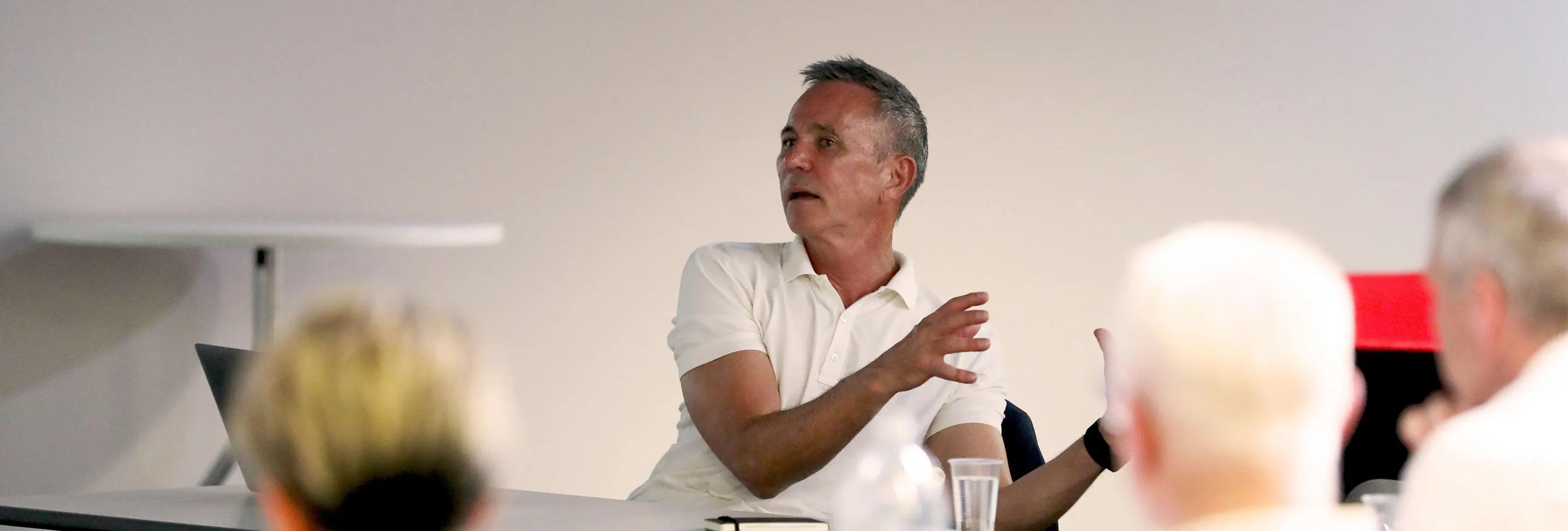Since May, the University of Central Lancashire's Media Innovation Studio has convened a group of experts from industry, policy, education, and civil society to explore ways to enhance news literacy education in the UK.
A policy brief released today outlines the group's findings and recommendations for a more coherent approach to news literacy education. This can help counter the kind of disinformation that fuelled recent unrest in UK towns and cities by fostering a critically engaged and well-informed citizenry.
The policy brief, Citizens and the News: Strategies for Securing News Literacy Education in the UK, is a key output of the News Futures 2035 project, an 18-month collaborative initiative funded by the Google News Initiative and Research England.
Convened by the Media Innovation Studio at the University of Central Lancashire, the project brought together over 300 experts from industry, policy, civil society, and academia to explore the future of trustworthy public-interest news in the UK.
The project resulted in three significant reports, a shorter version of which was submitted to the House of Lords Communications and Digital Select Committee as evidence in their inquiry into the future of news. Additionally, the highly-ranked Media and Communication journal published an academic paper on the project's innovative methodology.
"In our rapidly changing media landscape, the public’s capacity to differentiate between factual information and falsehood is an essential proficiency."
— Dr François Nel
A Coordinated Approach to News Literacy Education
The project was led by the University’s Dr François Nel, from its Media Innovation Studio, with support from colleagues Professor of Literacies and Education Candice Satchwell, postdoctoral researcher Dr Kamila Rymajdo, doctoral researcher David Lush and graduate of the MA in Journalism Innovation and Leadership Hussein Melele.
The policy brief calls for a more coordinated and comprehensive approach to news literacy education in the UK, integrating it into formal education and lifelong learning initiatives.
“In our rapidly changing media landscape, the public’s capacity to differentiate between factual information and falsehood is an essential proficiency,” said Dr Nel.
The brief positions news literacy education as fundamental to informed citizenship and a functioning democracy, enabling people to think critically about the news and make informed decisions.
To achieve these goals, the brief recommends three core strategies:
- Mandate the provision of news literacy for every student in every school and college across the nations of the United Kingdom.
- Expand lifelong learning and broaden educational participation for groups that cannot be reached via the formal education system.
- Coordinate news literacy initiatives and funding through a News Literacy Forum and a designated government minister responsible for media and information literacy (with news literacy as a core component).
"As digital platforms become the primary source of news for many, integrating robust digital literacy training is essential."
— Madhav Chinnappa, currently at Human Nature AI
Collaboration is Key
The policy brief builds on insights gathered from a May 2024 workshop at the University of Central Lancashire’s Media Factory, co-organised by Dr Nel and with support from Professor Simeon Yates and Dr Gianfranco Polizzi from the University of Liverpool and Liverpool John Moores’ Frances Yeoman.
The workshop brought together 15 industry experts from fields including journalism, education, civil society, and technology. During the workshop, participants underscored the urgent need for collaboration among educators, media professionals, policymakers, and tech companies to implement and support news literacy initiatives effectively.
Madhav Chinnappa, currently at Human Nature AI (a start-up building a fair AI data licensing marketplace), who was formerly with the Google News Initiative, which he co-founded, emphasised the role of digital literacy as part of broader news literacy efforts, stating: “As digital platforms become the primary source of news for many, integrating robust digital literacy training is essential.”
He stressed the need for inclusivity across all age groups, a sentiment echoed by Alison Gow, who serves on the Board of the Public Interest News Foundation, who noted: “Helping audiences learn about the sources of their news, and why trustworthy journalism matters, supports the broader ecosystem of public-interest news.”
"Helping audiences learn about the sources of their news, and why trustworthy journalism matters, supports the broader ecosystem of public-interest news."
— Alison Gow, who serves on the Board of the Public Interest News Foundation
Looking Ahead: News Futures Forum
The release of this policy brief marks a significant step for the News Futures 2035 initiative as its work continues through the proposed News Futures Forum. This multi-stakeholder forum aims to foster understanding, encourage collaboration, and develop actionable solutions to ensure a sustainable future for public-interest news in the UK and beyond.
“By working together across sectors, we can create a future where a well-informed public actively engages with trustworthy journalism,” Dr Nel concluded. “The time to act on news literacy education is now.”
To access the full policy brief and other reports from the News Futures 2035 project, please visit the Media Innovation Studio website.
Those interested in staying updated on the progress of the News Futures Forum are encouraged to fill out a short expression of interest form on the website. People can also email the team.

